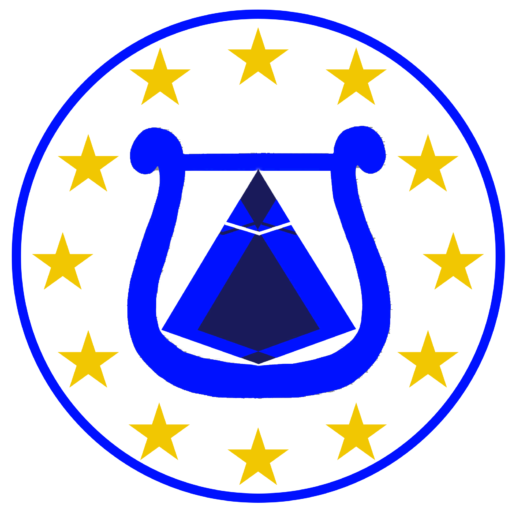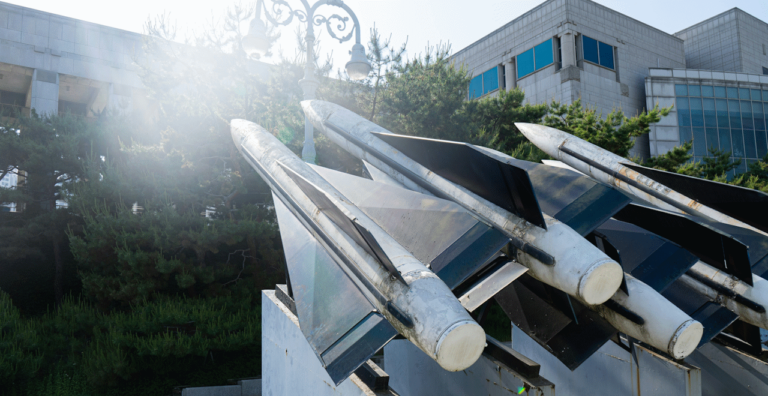Artificial Intelligence: Redefining Diplomacy in the Digital Age
Diplomacy is one of the oldest tools that governments have used to manage their international relations. Diplomatic relations in the 21st century are very different from those in the 17th century. At that time, envoys from kings traveled around the world to deliver important documents or convey important news to the ruler of another country, while also discussing the relations between the two countries. Today, heads of state do not even need to leave their offices to convey their thoughts or intentions, this can be done through a speech in the media or a post on the Internet, and the whole world will immediately know about the intentions of a particular country in its foreign policy. However, today, diplomacy and international relations are faced with challenges such as the complexity of global issues and the rapid flow of information. This study examines how artificial intelligence affects diplomacy and international relations using the texts of authoritative international articles and will answer the question of how artificial intelligence can play a pivotal role in issues related to diplomacy and international relations. There has been a close relationship between technological change and international relations since the past.
From the introduction of the steam engine to the advent of the telegraph, telephone, and radio, they marked important milestones that enabled faster and more direct communication and reduced the need for intermediaries and diplomatic bureaucracy. Today, the development and deployment of artificial intelligence systems has the potential to change various aspects of human life, just as climate change had this capability in the international system a few decades ago. The reason why artificial intelligence has an impact on international politics, especially in the field of diplomacy, is because politics and political issues are among the most complex human behaviors, and this complexity reaches its highest level in the international arena. The importance of artificial intelligence is so great that Russian President Vladimir Putin stated in a statement that … whoever controls artificial intelligence will control the world. Therefore, it can be said that digital technologies and artificial intelligence have the same importance in modern international relations as nuclear technologies had in the 19th and 20th centuries. In this regard, many countries, especially the United States and China, are taking strategic steps at the intersection of artificial intelligence and diplomacy. The United States has appointed Nathaniel C. Fick, CEO of a cybersecurity company, as the country’s head of cyberspace and digital policy in 2022. In November 2023, the US State Department’s first-ever AI strategy was released, signed by Secretary of State Antony Blinken. In the document, the US strategy in the diplomatic sphere pursues four main goals: leveraging secure AI infrastructure, creating a culture that embraces AI technology, ensuring responsible use of AI, and being open to innovation. China, on the other hand, is taking national steps to become a global AI hub by 2030, with the Next Generation AI Development Plan developed in 2017.
China’s Foreign Ministry also announced that it will use artificial intelligence to improve its work in the field of diplomatic analysis and decision-making. Turkey has also announced that it does not intend to lag behind in the technological-political competition with the National Strategy Document for Artificial Intelligence 2021-2025, which was announced by the Presidential Digital Transformation Office in 2021. Therefore, it has assigned eight important tasks to its Ministry of Foreign Affairs, including implementing mechanisms to attract talents in the field of artificial intelligence and transfer them to Turkey, establishing a special mechanism for global technology companies to carry out research and development activities in the field of artificial intelligence in Turkey, obtaining data from the Turkic-speaking republics in the development of major Turkish language models and developing cooperation mechanisms for using the developed model in the Turkic-speaking republics, developing cooperation to share knowledge and experience with countries that have developed their own major language models, pursuing studies on the free and secure circulation of data, and supporting exchange activities of higher education students and personnel in the field of artificial intelligence. In Romania, the appointment of an AI robot named Lun as an advisor to the Romanian Prime Minister is an important step in the acceptance of AI in international relations. This AI-based advisory bot was developed by researchers to quickly analyze Romanian citizens’ opinions on key issues and policies. Meanwhile, the United Arab Emirates appointed the world’s first Minister of Artificial Intelligence, Omar bin Sultan, reflecting the growing trend of integrating AI into government functions.
Denmark has also appointed Marie Engtaft Meldgaard as its Technology Ambassador, who is responsible for representing the Danish government in the global technology industry and global governance forums on emerging technologies, and is tasked with promoting the Danish government’s foreign and security policy priorities. The European Union is also opening a new office in San Francisco, as a global hub for digital technology and innovation. The office will strengthen the EU’s cooperation with the United States on digital diplomacy and increase the EU’s capacity to engage with key public and private stakeholders, including policymakers, the business community and civil society in the digital technology sector. Also, the introduction of artificial intelligence in the development of weapons, both conventional and cyber, such as aircraft, drones, military robots and missiles, will revolutionize military affairs. Ukraine’s success on the battlefield against Russia has been due to the innovative use of new technologies, from aerial drones to artificial intelligence systems. Along with the use of AI for political and military competition in the international arena, many countries are trying to develop their own AI-based tools to optimize the work of their diplomatic missions and model specific international situations. A striking example of the use of AI by diplomatic and consular institutions is the visa issuance process.
In recent years, this process has become so automated that it allows consular officers to save a significant amount of time that was previously spent on analyzing thousands of applications, and thus focus on more important issues. AI is currently actively used by Schengen member states to control European borders, not only for processing biometric data, but also for emotion recognition and risk assessment. This allows not only for the exchange of information between member states’ visa systems, but also for common approaches to solving common problems. For example, Germany is using AI in the context of the refugee crisis. The country has integrated AI to understand and evaluate data from refugee-related organizations, intelligence reports, and social media. A notable example of the use of AI is by Japan’s Ministry of Foreign Affairs. In 2019, the country introduced an AI-powered system called Sakura to assist Japanese citizens abroad with consular services through a chatbot that answers questions and conveys vital information. The system significantly improves the efficiency and speed of consular services, allowing for a rapid response to emergencies. South Korea is also a great example of a country using AI. It has been active in creating international platforms and forums to discuss the future of AI, and has hosted and participated in global AI conferences. The Ministry of Foreign Affairs of South Korea has established a department called AI Diplomacy within the ministry, which will play a key role in formulating and advancing South Korea’s AI diplomatic strategy. Its key objectives include strengthening bilateral AI partnerships with key global partners such as the United States, actively participating in multilateral AI discussions in international organizations such as the United Nations, the G20, the G7, the Organization for Economic Cooperation and Development (OECD), and the Asia-Pacific Economic Cooperation (APEC), and facilitating cross-sectoral collaboration with relevant government organizations to ensure that Korea remains at the forefront of global discussions on AI policies.
The establishment of the department highlights Korea’s ambition to lead in AI diplomacy and positions the country as an active player in shaping the future of AI governance on the international stage. Along with the advantages and benefits of AI in diplomacy and international relations, there are also challenges. The increasing use of AI in international diplomacy brings ethical and regulatory challenges. Among the ethical challenges are transparency in decision-making and the possibility of bias in algorithms. An AI system is only as reliable as the data it is given, and if this data contains bias or distortion, its resulting decisions will be affected. Furthermore, the lack of transparency in the internal functioning of these systems can cause distrust among state and non-state actors, reducing the effectiveness of diplomacy and damaging the legitimacy of the institutions that employ them. In addition to these ethical challenges, there are also cybersecurity concerns. The vulnerability of AI systems to cyberattacks represents a significant risk. Various actors, both state and non-state, can manipulate algorithms to produce false information or change critical decisions in diplomatic scenarios. Data security is crucial, and as a result, implementing advanced cybersecurity strategies to protect the digital infrastructure that underpins modern diplomacy is essential. Regarding regulatory challenges, although there are efforts to establish international standards governing the use of AI, there is still no unified global framework to guide its implementation in the diplomatic sphere. Countries such as China and the United States have made rapid progress in developing AI technologies, while other developing countries lack the resources and infrastructure to compete on a level playing field. This technological disparity is exacerbating the digital divide and establishing a new type of technological hegemony. The most advanced countries in AI will dominate the global diplomatic scene, and therefore, the international community faces the urgent task of developing regulatory frameworks that promote fairness, transparency, and accountability in the use of AI in diplomacy. Multilateral organizations such as the United Nations and the Organization for Economic Co-operation and Development (OECD) have begun discussing proposals for the ethical and responsible use of these technologies. Establishing audit algorithms and international cooperation in the development of AI are some of the recommendations that could be implemented to mitigate these risks. In conclusion, to summarize the material, we can conclude that artificial intelligence will not replace diplomacy, but it will redefine it. Artificial intelligence represents a revolution in the way international relations and diplomacy are conducted in the 21st century.
Its impact on international diplomacy is only the beginning of a broader transformation; AI will play a deeper role in diplomatic decision-making, conflict resolution, and multilateral cooperation. However, governments and institutions must work together to mitigate the ethical and technical risks noted. Since diplomacy is a unique channel for the peaceful resolution of conflicts, the promotion of peace and international cooperation, especially in the face of new challenges on the global stage, it is essential that foreign ministries, intergovernmental institutions, universities and academic centers provide society with professional tools to enable them to adapt to new global dynamics. Artificial intelligence can help diplomats better understand geopolitical dynamics, identify opportunities for cooperation and deal with conflicts more effectively. The use of artificial intelligence undoubtedly calls on countries to reconsider their international relations and foreign policy and diplomacy priorities. We must be ready to accept these challenges and opportunities. International discourse increasingly points to the need to exploit a more structured and practical implementation of artificial intelligence so that governments and civil society focus on its improvement and correct applications.
Amir Mojtahedi
Foreign Policy Researcher
Latin sources:
https://revistafal.com/el-avance-de-la-inteligencia-artificial-y-las-relaciones-internacionales/
https://lcss.gov.ly/articles/blog/post-294/
https://www.newsweek.com/china-using-artificial-intelligence-help-make-diplomatic-decisions-1048734
https://www.google.com/url?sa=t&source=web&rct=j&opi=89978449&url=https://euroasiajournal.com/index.php/eurssh/article/download/471/376/1116&ved=2ahUKEwiv9YH6huqNAxUZRaQEHYLgHv4QFnoECBUQAQ&usg=AOvVaw1ByaijNFRSRNS1uuGOIruI
https://techamb.um.dk/team/meet-the-ambassador
https://www.europarl.europa.eu/RegData/etudes/IDAN/2021/690706/EPRS_IDA(2021)690706_EN.pdf
https://rephip.unr.edu.ar/server/api/core/bitstreams/6fa5d53e-9743-46c5-b260-3b5f8b57c092/content







